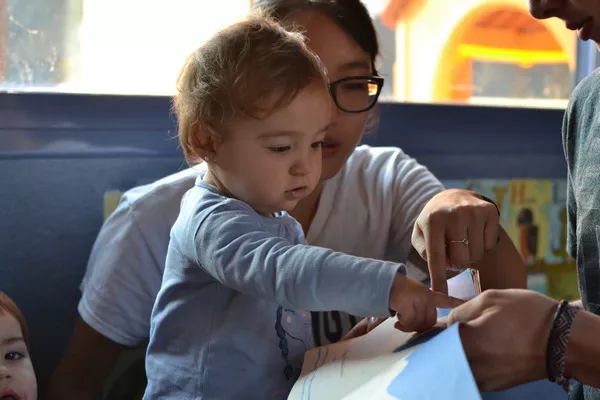Sepsis, a life-threatening condition triggered by an aggressive immune response to bacterial infections, remains a significant cause of infant mortality worldwide, particularly in low- and middle-income countries. According to the World Health Organization (WHO), sepsis claimed the lives of approximately 2.9 million children under the age of five in 2017. However, a group of students at the École polytechnique fédérale de Lausanne (EPFL) may have a solution that could revolutionize the early detection and treatment of sepsis in newborns.
The Neosens project, developed at EPFL, has introduced an affordable biosensor that has the potential to diagnose sepsis within minutes. Neosens operates by detecting interleukin 6, a key messenger molecule produced by newborns’ immune systems in response to various biological conditions, serving as an early indicator for sepsis.
In 2022, the international SensUs competition for students selected interleukin 6 as its target molecule. Participating teams had six months to devise a sensor capable of quantifying interleukin 6 concentrations in a single drop of blood for diagnostic purposes. The EPFL research group, comprising 12 students from diverse disciplines, produced an initial device as part of EPFL’s Make program.
Their remarkable achievement included winning three awards at the SensUs finals in Eindhoven, including the prestigious Translation Potential award. Encouraged by their success, three team members, Karim Zahra, Marco Fumagalli, and Mateo Hamel, decided to continue developing the technology.
The patented Neosens technology, developed at EPFL’s BioNanoPhotonic Systems Laboratory (BIOS), underwent numerous iterations to improve reliability and reduce detection times. The team also created a machine learning program capable of consistently identifying the interleukin 6 marker.
Medical industry professionals provided positive feedback, with Prof. Ashraf Omar, a chief physician in Cairo, describing sepsis as a “neonatology nightmare” and acknowledging the technology’s potential to address a critical public-health issue.
In 2023, the three students joined EPFL’s Blaze Startup Accelerator program, known for providing intensive coaching on bringing technology to market and navigating the challenges of entrepreneurship. Approximately 40% of student groups participating in Blaze proceed to establish their own companies. The Neosens prototype garnered both the audience award and the jury award at the Blaze awards ceremony in June. Furthermore, the team secured the first position in Start Lausanne, a six-month program for Swiss university students.
With unwavering motivation, the team utilized their summer break to advance their project further. Their next goal is to gain a deeper understanding of the specific bacteria that trigger the immune response detected by their device. A more ergonomic prototype is expected to be ready later in 2023, bringing them one step closer to making Neosens available in the market.
In a separate innovation, Thomas Cañellas Rey de Vinas, a Master’s student at EPFL, is exploring the use of plant moss to purify indoor air. Indoor air quality is a concern due to particles from various sources, including construction materials, cleaning products, and furniture. Rey de Vinas drew inspiration from his childhood experiences in the woods and his fascination with bryophytes, or plant moss, which has a natural ability to absorb pollutants.
While some previous work has explored this concept, Rey de Vinas aims to enhance it by evaluating different moss species and creating various natural frames for their integration. Moss is known for its ease of maintenance, and Rey de Vinas envisions incorporating a watering device directly into the system.
Rey de Vinas participated in the spring 2023 edition of Changemakers, where he received guidance and support for his business idea. He emerged as the first-place winner at the awards ceremony in June. The Changemakers program, held each spring and fall, offers 12 weeks of workshops and professional coaching to develop students’ entrepreneurial skills and foster innovation-minded communities.
Rey Cañellas de Vinas’s next step is to construct an initial prototype of his natural air purifier for use in his home, marking another promising development in addressing indoor air quality issues.


